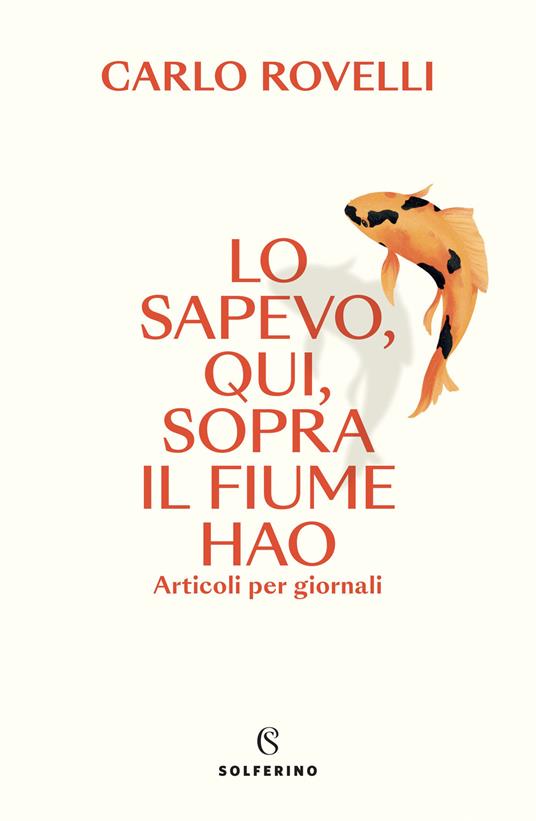
Five years after the great success of “Ci sono luoghi al mondo dove più delle regole è importante la gentilezza” (There are places in the world where kindness is more important than rules), the famous physicist Carlo Rovelli proposes in his new book “Lo sapevo, qui, sopra il fiume Hao” (I knew it, here, above the Hao river) a collection of his most recent writings, some of which are unpublished in Italy.
“Lo sapevo, qui, sopra il fiume Hao” is a book that takes readers on a fascinating intellectual journey between science, philosophy, and current events. Throughout this exploration, Rovelli echoes an ancient conversation between the philosophers Zhuangzi and Hui Shi. While the two philosophers were walking on a bridge over the Hao River, observing the fish swimming serenely in its waters, Zhuangzi said: «Those little fishes that wander around relaxed and without haste, are happy fish!». To which, Hui Shi objected: “You are not a fish; How do you know how a fish is doing?”. “When you said ‘how do you know how a fish is doing?’ you knew I knew. I knew it, here, above the Hao River.”

Pages: 288 p., Paperback | EAN: 9788828213314
It is the dialogue that opens and gives its title to this book and comes from one of the great texts of humanity, the Zhuangzi, the work of the “Master Zhuang”, the central figure of Taoism. His strength lies «in the ability to question what appears obvious, overturn points of view and open perspectives». Zhuangzi makes a bold statement: “Those little fishes that are lounging around are happy fish!” Hui Shi’s skeptical response, “You are not a fish; how do you know how a fish is?” sparks a profound dialogue about perception, knowledge and how we interpret reality. This ancient exchange of ideas offers valuable lessons that are reflected in scientific discoveries and our understanding of the world today.
Even Kepler, to «convince an astonished humanity that the Earth is not the center of the cosmos and turns rapidly on itself», proceeds to reverse perspective: in his Somnium, he tells of an Icelander and his mother, brought to the Moon by “the mildest and most harmless of demons”, who observe the Earth, the Sun and the cosmos from a moving celestial body; and as we read what they describe we realize that we too, on Earth, are observing the universe from a moving body…
Through quotes from Sappho and Theophrastus to Heidegger, Rovelli explores the history of science and philosophical thought, combined with his personal memories and intellectual passions, challenging conventional notions of dualism between subject and object and underlining the importance of changing perspective to face the challenges of the modern world.
Credits
Author: Anna Lacci is a scientific popularizer and expert in environmental education and sustainability and in territory teaching. She is the author of documentaries and naturalistic books, notebooks and interdisciplinary teaching aids, and multimedia information materials.
Translation by Maria Antonietta Sessa



